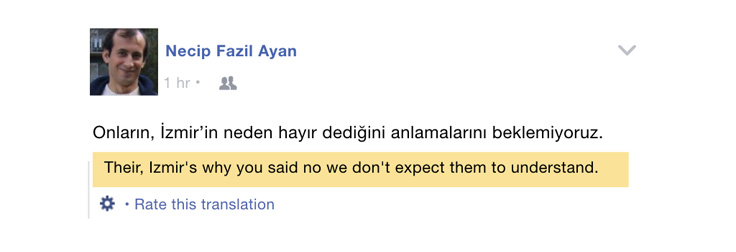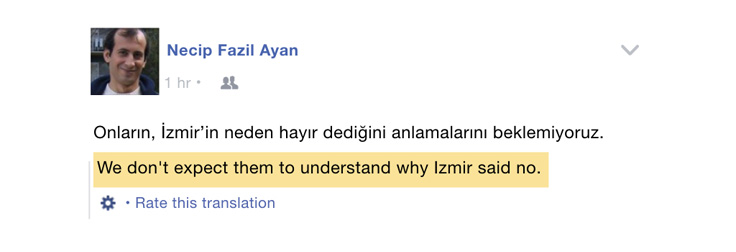Facebook has been working on changing how it translates text in posts and comments and today it announced that its transition is complete. It means that translations should be quite a bit more accurate going forward.
Previously, Facebook was using phrase-based machine translation models, which break down sentences into words or phrases, limiting how they can go about translating a full sentence. These sorts of models' shortcomings were particularly evident when translating between languages with really different sentence structures. Now, however, the site is using neural networks to power its translations, which can take into account full sentences as well as their context, generating much more accurate translations. The example Facebook provided is below. The first translation is produced by a phrase-based system while the second is the product of a neural network.


The neural nets can also handle unknown words better than other systems and can generate translations more quickly. The advantages afforded by neural networks have led Google and Microsoft to adopt them for their translations as well.
Facebook said in a statement, "Completing the transition from phrase-based to neural machine translation is a milestone on our path to providing Facebook experiences to everyone in their preferred language. We will continue to push the boundaries of neural machine translation technology, with the aim of providing humanlike translations to everyone on Facebook."